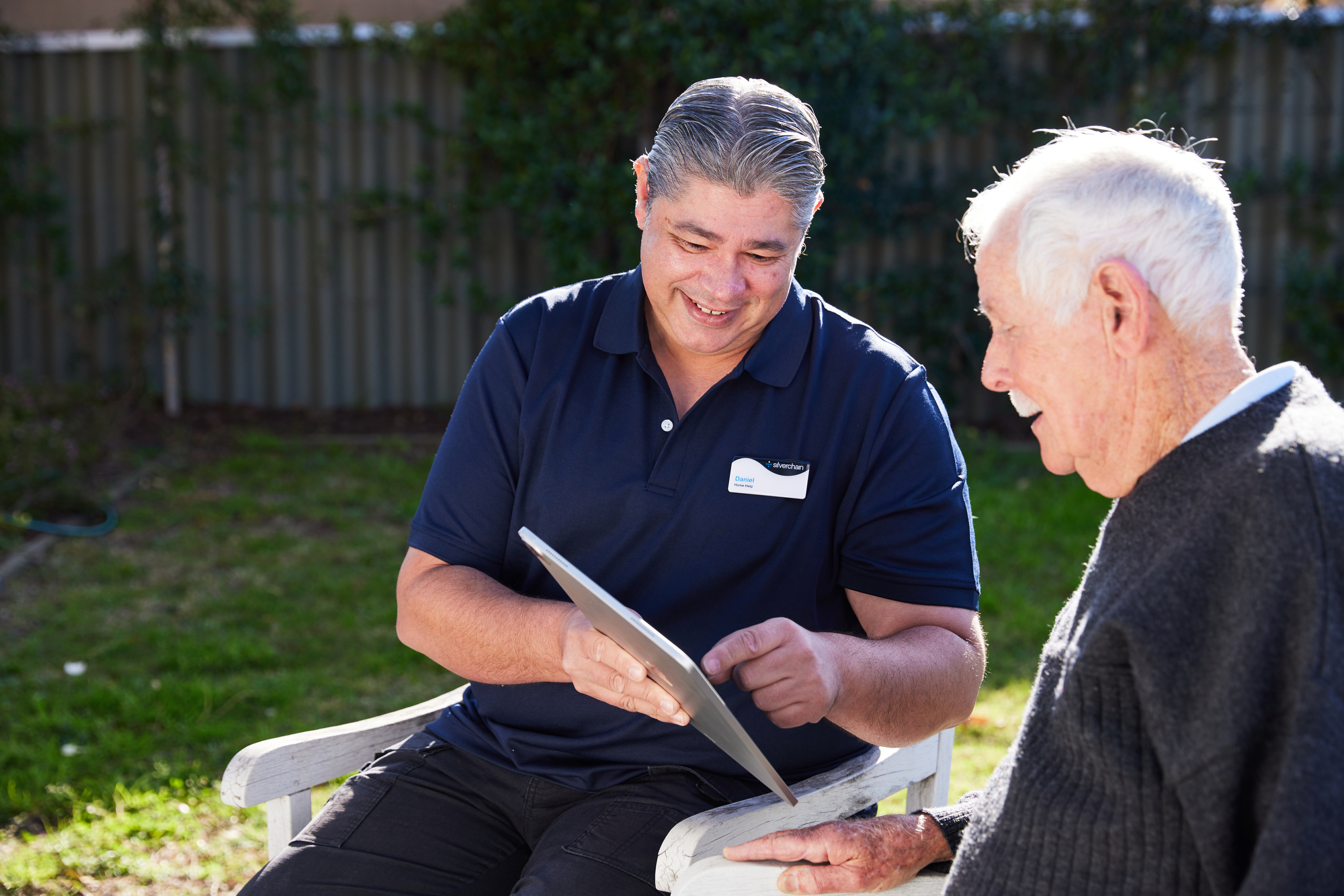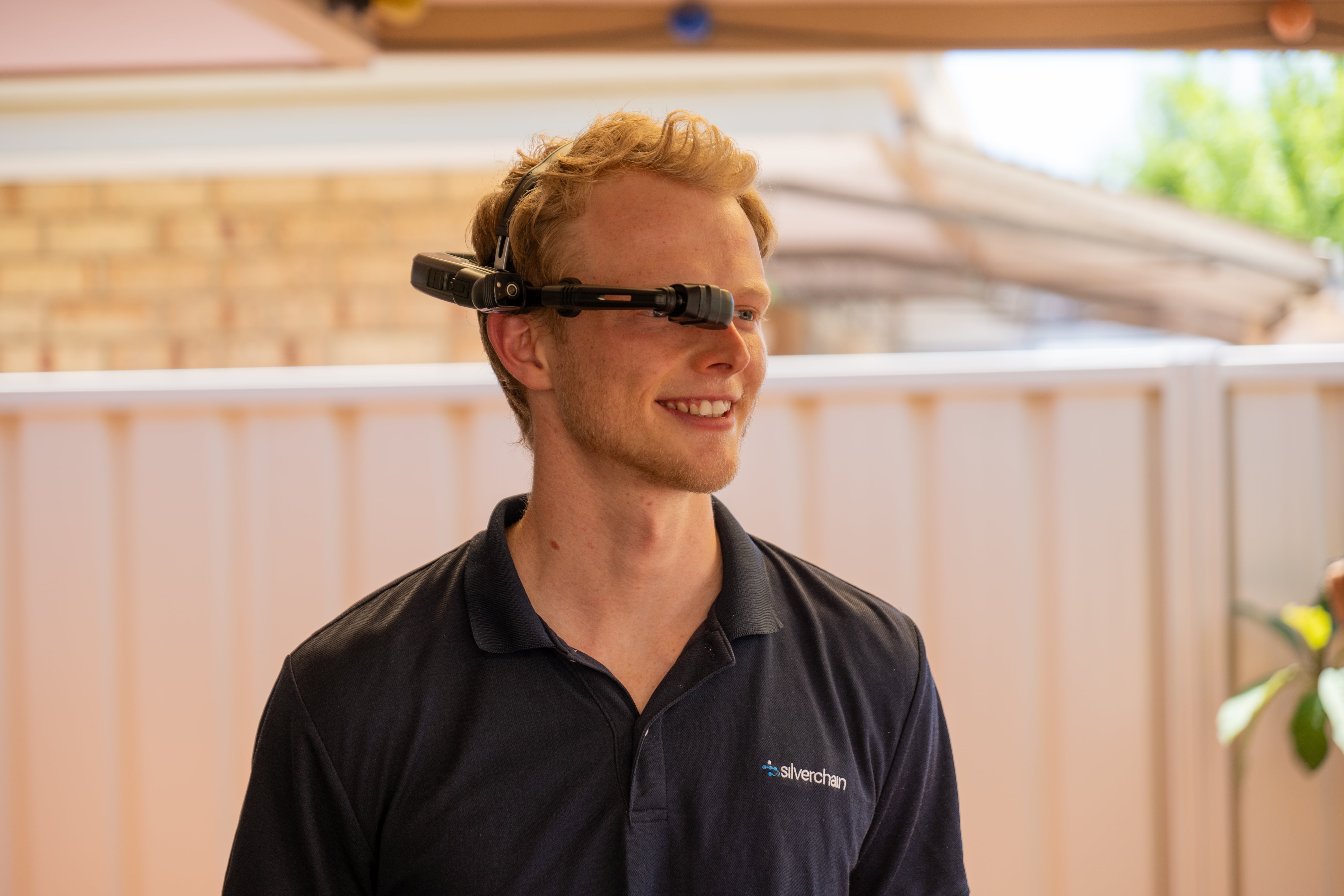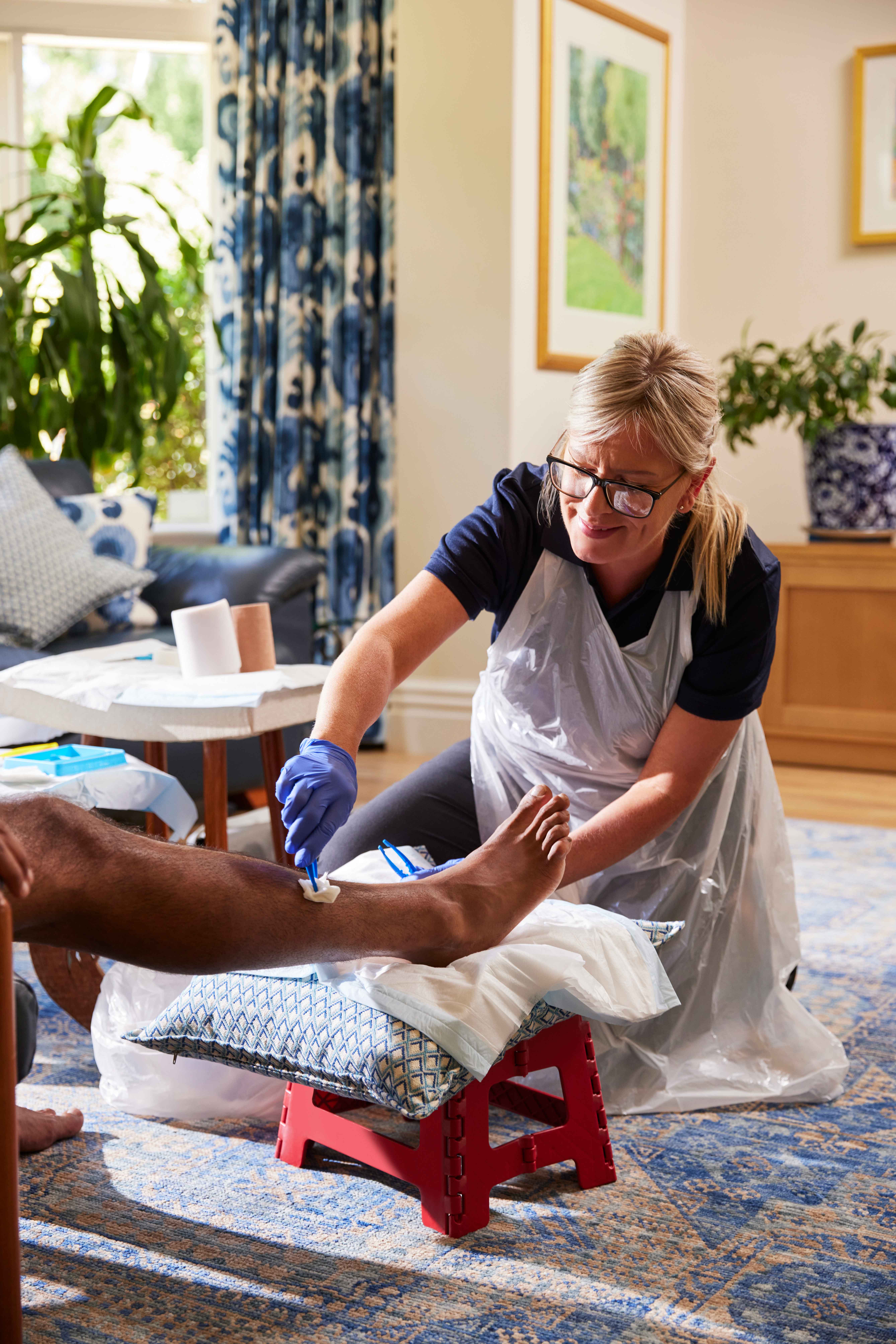- Home
- Latest news from Silverchain
- High tech supporting next generation of nurses
High tech supporting next generation of nurses
Nursing students are gaining unprecedented access to real-time clinical support through the use of cutting-edge smart glasses technology during their palliative care placements, thanks to a collaboration between leading home care provider Silverchain and Curtin University.
Third-year Curtin nursing students are partnering with Silverchain clinicians in the field, using smart glasses to support their learning and clinical practice. These students are paired with experienced registered nurses to deliver home-based palliative care services as part of their required 800 hours of clinical placement. Students' learning is further supported by Curtin clinical facilitators who supervise and guide students remotely using real-time SmartGlass technology. Students’ learning is further supported by Curtin clinical facilitators who supervise and guide students remotely using real-time SmartGlass technology.
Silverchain is the first organisation in Australia to implement smart glasses at scale in home care, leading the way in applying wearable technology to enhance clinical practice. The devices feature a built-in camera and live video streaming, enabling real-time, hands-free collaboration between frontline care providers and remote clinicians. This innovation improves responsiveness, supports safer decision-making, and strengthens the quality of care delivered in the home.
Silverchain Chief Executive Dale Fisher AM said the technology is transforming home care delivery in Australia.
"The future of care is in the home, and Silverchain is proud to support the next generation of clinicians with care innovation. By turning technological advancement into real progress on care equity, Silverchain is providing an even greater care experience for our clients, improving safety and the delivery of care in the home," Adjunct Professor Fisher said.
"Our continuing partnership with Curtin is a natural extension of our commitment to innovation and care equity. Australians are demanding greater choice and flexibility in how and where they receive care, and technology is increasingly playing a vital role in making that possible. By equipping nurses with the tools to deliver high-quality care at home, we're building a more responsive and resilient workforce for the future.
"The integration of this technology has already led to improved patient outcomes and efficiency. It reduces the need for follow-up appointments, enhances medication management and wound care reviews, and helps prevent unplanned escalations - all of which contribute to easing the pressure on the broader public health system."
Curtin nursing student Connin Pinto said the smart glasses became a valuable tool in his clinical learning experience.
"When I was first introduced to the smart glasses, they looked quite intimidating as the technology was so new to me. However, I was provided with great training and reassurance which allowed me to have a great learning experience with the smart glasses and an enjoyable time using them. The smart glasses gave me a platform to show my clinical facilitator my nursing skills even though she was remote and I was able to receive feedback in real time which I really liked. I am excited to see how these smart glasses are implemented into further placements as I believe they are a very valuable piece of equipment," Mr Pinto said.
Curtin clinical facilitator Julie Madhaji said the technology was reshaping the way nursing education was delivered in the field.
“I see immense potential for smart glasses to revolutionise education and significantly enhance learning outcomes across various healthcare fields including palliative care, which is the focus of my PHD research. My experience using smart glasses to facilitate nursing students during palliative care placements has been transformative, improving real-time communication and providing immediate support to students during critical moments,” Ms Madhaji said.



